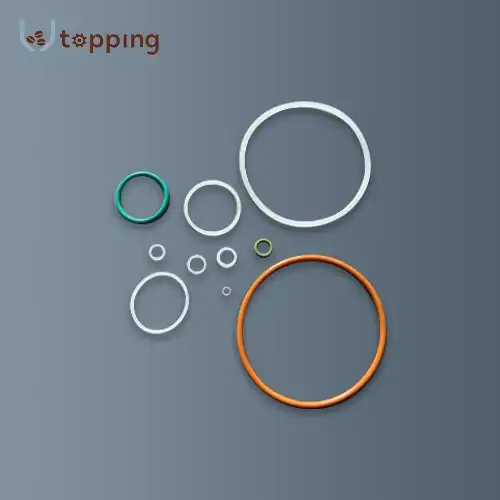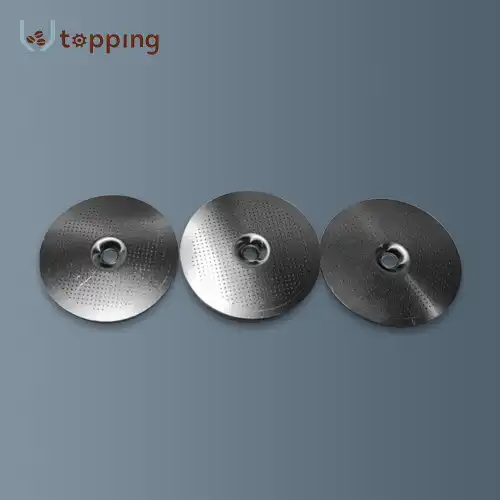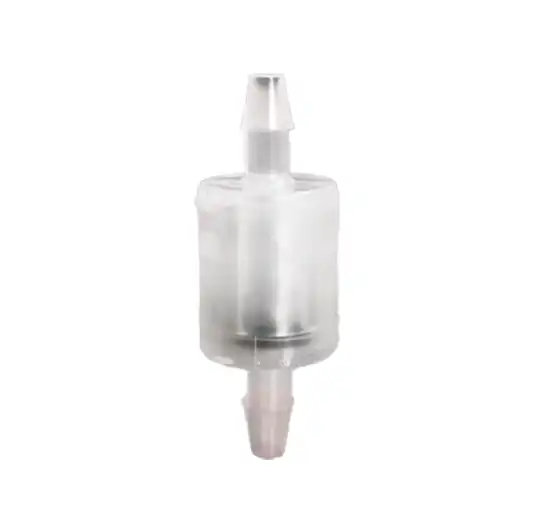Does In-Line Water Filter reduce water pressure?
2024-12-16 11:28:35
In-line water filters have become increasingly popular in both residential and commercial settings as people seek to improve their water quality. These filters are installed directly into the water supply line, providing a convenient way to remove contaminants and improve taste. However, a common concern among users and potential buyers is whether these filters will significantly reduce water pressure.
The relationship between in-line water filter and water pressure is often misunderstood. While it's true that adding any type of filter to your water system can potentially impact water flow, the extent of this impact varies greatly depending on several factors. Many modern in-line filters are designed to minimize pressure loss while still providing effective filtration.
This article aims to clarify the relationship between in-line water filters and water pressure, addressing common concerns and providing factual information to help you make informed decisions about your water filtration needs.

Factors Affecting Water Pressure
Before delving into the specific effects of in-line water filters on water pressure, it's important to understand the various factors that can influence water pressure in your home or business:
- Municipal Water Pressure: The baseline water pressure provided by your local water utility plays a significant role. In the United States, most municipal systems maintain water pressure between 45 and 80 psi (pounds per square inch). If your baseline pressure is on the lower end of this range, you may be more sensitive to any additional pressure drops.
- Pipe Size and Condition: The diameter of your pipes and their condition can affect water pressure. Smaller pipes or those with mineral buildup can restrict water flow, potentially amplifying any pressure loss caused by filters.
- Distance from Water Source: Houses located farther from the main water supply or on higher ground may experience lower water pressure due to the distance water must travel.
- Simultaneous Water Usage: Using multiple water outlets simultaneously (e.g., shower, dishwasher, and garden hose) can temporarily reduce water pressure throughout your home.
- Filter Type and Condition: The type of in-line filter you choose and how well it's maintained can significantly impact its effect on water pressure. Some filter types are more likely to cause pressure drops than others, especially if not properly maintained.
Understanding these factors is crucial when evaluating the potential impact of an in-line water filter on your water pressure. In many cases, perceived pressure loss after installing a filter may be due to pre-existing conditions rather than the filter itself.
Filter Types and Their Impact on Water Pressure
Different types of in-line water filter can have varying effects on water pressure. Here's an overview of common filter types and their potential impact:
- Sediment Filters: These filters remove particulate matter like sand, rust, and debris. They typically have a minimal impact on water pressure when clean but can cause significant pressure drops if allowed to clog.
- Activated Carbon Filters: Used to remove chlorine, organic compounds, and improve taste and odor, carbon filters generally have a low to moderate impact on water pressure. The extent of pressure loss often depends on the specific design and size of the filter.
- Reverse Osmosis (RO) Systems: While not typically considered "in-line" filters, some RO systems can be installed this way. These systems can significantly reduce water pressure due to the nature of the filtration process. However, many modern RO systems include pumps to mitigate this issue.
- KDF (Kinetic Degradation Fluxion) Filters: These filters use a copper-zinc formulation to remove heavy metals and chlorine. They generally have a minimal impact on water pressure.
- Ultrafiltration Membranes: These filters can remove bacteria and viruses while maintaining good flow rates. Their impact on water pressure is typically moderate.
It's important to note that while all filters can potentially reduce water pressure to some degree, many modern designs are optimized to minimize this effect. The key is to choose a filter that balances your water quality needs with your desired water pressure.
Advice for Choosing the Right Filter
When selecting an in-line water filter, consider the following advice to minimize the impact on your water pressure:
- Assess Your Water Quality: Have your water tested to determine which contaminants you need to filter out. This will help you choose a filter that addresses your specific needs without unnecessarily impacting water pressure.
- Consider Flow Rate: Look for filters with a flow rate that matches or exceeds your household needs. Flow rate is typically measured in gallons per minute (GPM). A higher flow rate generally means less impact on water pressure.
- Check Pressure Drop Specifications: Manufacturers often provide information on the expected pressure drop across their filters. Choose filters with lower pressure drop ratings to minimize impact on your water pressure.
- Size Matters: Opt for larger filter housings when possible. Larger filters generally create less resistance to water flow, resulting in lower pressure drops.
- Regular Maintenance: Establish a regular maintenance schedule for your filter. Clean or replace filter cartridges as recommended by the manufacturer to prevent unnecessary pressure loss due to clogging.
- Consider Multi-Stage Systems: If you need to remove multiple types of contaminants, consider a multi-stage system rather than stacking multiple single-stage filters. This can help maintain better overall water pressure.
- Consult a Professional: If you're unsure about which filter is best for your situation, consult a water treatment professional. They can assess your specific needs and recommend a solution that balances filtration effectiveness with minimal pressure loss.
By carefully considering these factors, you can select an in-line water filter that provides the water quality you desire while minimizing any negative impact on your water pressure.
In-Line Water Filter Supplier
When choosing an in-line water filter, it's crucial to select a reputable supplier that offers high-quality, certified products. Topping Motor is one such supplier, providing in-line water filters that meet rigorous industry standards.
Topping Motor's in-line water filter boasts several important certifications, including NSF (National Sanitation Foundation), ANSI (American National Standards Institute), and FDA (Food and Drug Administration) approvals. These certifications ensure that the filters meet strict quality and safety standards for drinking water treatment units.
NSF/ANSI certifications are particularly important in the water treatment industry. They verify that a product has been tested by an independent third party and meets specific standards for contaminant reduction, structural integrity, and material safety. FDA approval further confirms that the materials used in the filter are safe for contact with drinking water.
In addition to these key certifications, Topping Motor's filters may hold other relevant approvals, depending on the specific model and intended use. These could include certifications from organizations like the Water Quality Association (WQA) or compliance with specific regional standards.
If you're in the market for a high-quality, certified in-line water filter and are considering manufacturers, Topping Motor invites you to reach out to them at sales@huan-tai.org. Their team can provide detailed information about their products, certifications, and how their filters can meet your specific water filtration needs while minimizing impact on water pressure.
References
1. Environmental Protection Agency. Drinking Water Treatability Database.
2. NSF International. NSF/ANSI 42: Drinking Water Treatment Units - Aesthetic Effects.
3. Water Quality Association. Water Treatment System Maintenance.
4. American Water Works Association.Water Pressure.
5. Journal of Water Supply: Research and Technology-Aqua. Impact of household water filters on water quality and pressure. Volume 69, Issue 1.
Send Inquiry
You may like





